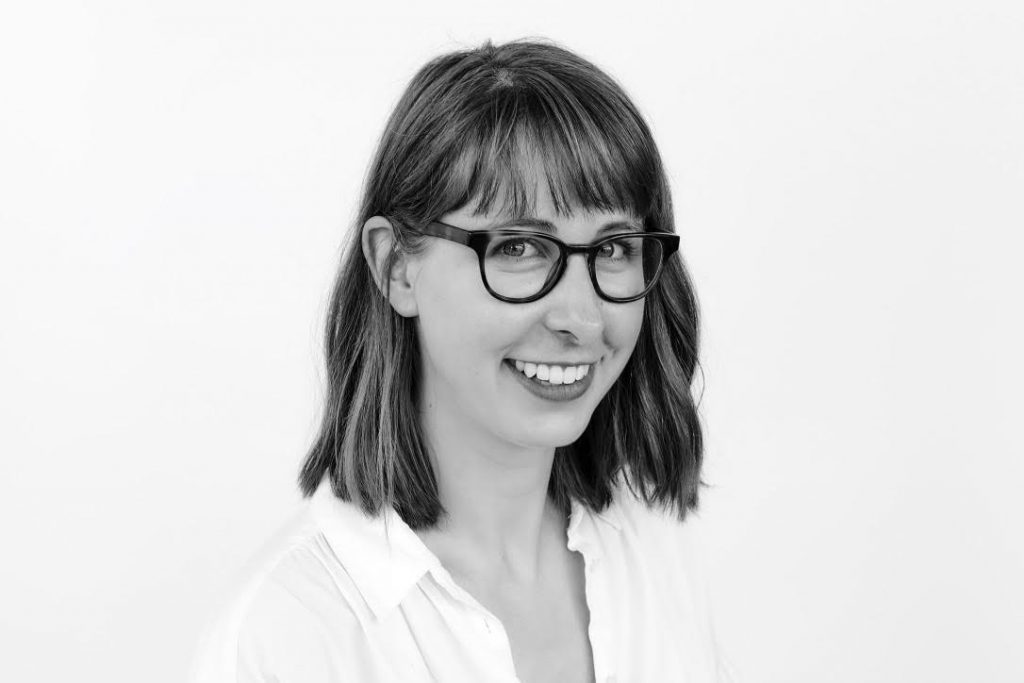
Former NER intern and current literary agent Alison Lewis ’14 talks to intern Rachel Horowitz-Benoit ’21 about her career, Middlebury, and new books she’s excited about.
Rachel Horowitz-Benoit: When were you an intern at NER and what was a highlight (or anything you remember doing) of your experience?
Alison Lewis: The highlight was always discussing fiction submissions—trying out my own very nascent editorial opinions, and hearing Carolyn Kuebler’s shockingly wise and perceptive insights. There were two stories we read from the general submissions pile during my time at NER that ended up getting published, and I remember the awe of feeling each of those stories open up for me as Carolyn talked about them.
Also an unexpectedly memorable highlight: during that time NER moved offices, and I got to help then Editor Stephen Donadio pack up his mountains of books. There was an unbelievable number of them, filling deep shelves and stacked up on every flat surface. That was awe-inducing too, just touching all those books.
RHB: What was one skill you developed as an undergraduate, either in school or any internships, that most benefits you today in your professional work?
AL: Learning how to form and organize an argument. It came to me very slowly and painstakingly, over many late nights in the library (and the library cafe after the library would close for the night!), writing and rewriting essays for class. Also through working with first-year students on their essays as a writing tutor. I’m so grateful for all that. Now it feels very possible to help an author move the pieces of something they’ve written around until they make sense, to cut what feels vague or distracting, to clarify what they’re trying to say, and then (thrillingly!) watch the whole come into view.
Alison Lewis (in the middle) and friends during her time at Middlebury, where she majored in English and American Literature.
RHB: How did you come to your current job as a literary agent? What is your day-to-day like at the Zoe Pagnamenta Agency?
AL: I’ve been working in book publishing since graduating from Midd, first as an intern and then an assistant at the publisher W.W. Norton, then as an assistant at ZPA, and working my way up to agenting on my own, through sheer persistence! My day-to-day now is a mix of very “business-y” work—e-mails and contracts and negotiations—and long phone conversations with authors about their ideas and careers, lots of reading and editing, and talking with editors about books.
RHB: How much time do you find to read for pleasure outside of the reading necessary for your work? Have you read anything good lately?
AL: I try to always be reading for pleasure, however slowly, around all the work reading. It makes life feel worthwhile! And it also is always opening up new (or new to me) ways in which books can work on readers—structurally or line by line or in their vantage point on the subject or whatever. That fills me with hope and possibility too. I’m in the middle of Sanam Maher’s recent account of modern Pakistan, inflected through the honor killing of the social media star Qandeel Baloch, which is intimately reported on the ground, in the aftermath—it’s called A Woman Like Her. I also can’t stop talking about the Australian novelist Elizabeth Harrower’s In Certain Circles, a completely delightful short novel about two nearly devastating marriages, and about the software engineer and brilliant essayist Ellen Ullman’s Life in Code, on the 1990s and early 2000s in Silicon Valley. She saw it all coming, and warned us!
RHB: Is there a current or past project you are particularly excited about?
I’m really excited about the journalist Julia Cooke’s narrative history Come Fly the World, which published this March, and follows the lives of several Jet Age Pan Am stewardesses (as they then called themselves), who took the job for a chance to “see the world” and perhaps have a career of some consequence—a rare opportunity for women at the time—and ended up actively involved in history on the global stage, as airlines inserted themselves into international conflicts, most significantly the Vietnam War, and as stewardess unions fought for rights and dignity ahead of second-wave feminism and in concert with the Civil Rights movement.
And then coming out in August is the scholar Tina Campt’s A Black Gaze, examining the work of a remarkable emerging cohort of Black artists (Arthur Jafa, Deana Lawson, Khalil Joseph, Dawoud Bey, Okwui Okpakwasili, Simone Leigh, and Luke Willis Thompson) who are actively dismantling the white gaze and demanding that we see, and see Blackness in particular, anew. It’s such a powerful and important work of theory—I think it really gives us tools to reckon with this nation’s present and historic assault on Black lives—but also Tina is such a sensitive, poetic (and often very funny!) writer and observer of art, that it’s just a pure pleasure to spend time with her words.
RHB: Thank you for your time, Alison, and best of luck at your agency!